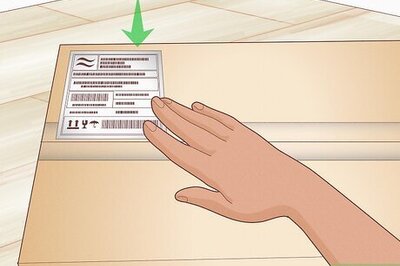
views
When tourist helicopters fly over the African jungles, the deafening roar has been reported to frighten away even large elephant herds, making them actually flee from the area. If the giants of the jungle could be scared into such extremes of behaviour, conservationists were worried about the effect of noise on the thousands of large and small animals and birds.
Reports have been tumbling in. Exposure of Desert Kangaroo Rats to dune buggy sounds affected their ability to detect a rattlesnake. Studies on Rhesus Monkeys in the lab have shown that a 30-per cent increase in blood pressure following exposure to an average 85 db of sound for eight months. Sound-stressed mice have been shown to be much more susceptible to diseases.
While the effect of sound pollution on individual animals or birds have been reported before, a new study on the effect of noise pollution on the interaction between animals and plants, ultimately affecting the pollination and seed dispersal, has been published in the March 21 issue of the Proceedings of The Royal Society B.
Clinton D Francis of the National Evolutionary Synthesis Centre, USA and team have reported that man-made din can have an effect on not just on animals, but on plants as well. This is because the plants depend on animals, birds and insects for getting pollen as well as dispersal of seeds. Their studies were carried out in the wild, the Rattlesnake Canyon area in New Mexico, that had a number of gas wells, most of which had compressors that rumbled at high amplitudes (greater than 95 dB). Noisy sites and quieter ones were marked.
The experiments had two parts, one on pollination and the other on seed dispersal. Just as artificial flowers are used for pollination studies, the scientists made artificial flowers and patches of artificial plants of a red flowered-plant that is generally pollinated by the black-chinned humming bird. They even filled the artificial flowers with sucrose to mimic the nectar.
They found that the humming birds visited the flowers in the noisy sites more than the quieter ones. Extending their study, the team found that this was actually a survival tactic of the humming bird to escape its predator, the Western Scrub Jay, which preferred quieter places. The loser, it turned out, was the scrub jay bird.
In their studies on seed dispersal, they chose the pine tree, Pinus edulis. The scientists distributed pine seeds under pine trees in both noisy and quiet areas and put up camera traps on tree trunks to monitor animal movement. They found nine different animals or birds taking away the seeds. Of these, two species showed a clear-cut preference to either the noisy or quiet sites - the mice and the scrub jays.
The mice loved the noisy areas but the scrub jays abhorred them. However, the pine seeds that went through the gut of mice never germinated and therefore there were no seedlings in the noisy areas.
The scrub jays gathered thousands of seeds and hid them in the soil, probably for later use. The chances of germination was higher here. When the scientists counted the seedlings in the quieter areas, it was four times more than the ones in the noisy area! Fewer trees in noisy areas would also mean thinner woods in the future and this would affect the hundreds of species dependent on these trees.
Apart from Clinton D Francis, other scientists who were part of the study were Nathan Kleist, Catherine Ortega and
Alexander Cruz. Not just land animals, even underwater animals such as whales and dolphins too were reported to experience discomfort due to noise pollution caused by submarines, ships and sonars, while the three-spined stickleback fish made foraging mistakes, when exposed to sound similar to that of speedboats. Inability to hear environmental cues, increased heart-rate, respiration and stress and abandonment of territory have also been reported. Maybe its time to turn down the volume a bit.



















Comments
0 comment